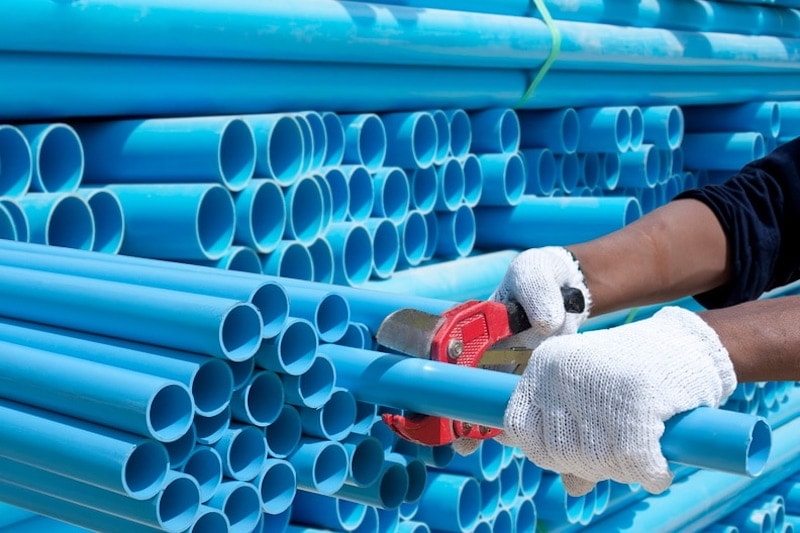Out With the Old, In With the New—Pipes in Your House

The pipes in any home are subject to wear and aging, same as everything else. However, since the pipes in a home are (for the most part) hidden from people’s eyes, it’s easy to ignore them and passively imagine they’ll last forever. Maybe a few repairs here and there, but otherwise the pipes are solid and don’t need to be upgraded.
But this isn’t the truth. Not at all. In fact, if you live in a home built earlier than 1970, or possibly even later, you probably need to have some amount of the pipes replaced with new material. Our team of experts, who are experienced with plumbing in Westford, MA and throughout the MetroWest, can give you a rundown on the condition of your pipes and what work needs to be done to upgrade the plumbing.
The Old
Let’s look at what we and other professional plumbers consider outdated piping materials.
Homes build before World War II may have extensive cast iron pipes or even a clay sewer line. Cast iron corrodes over time, and it may also send toxic chemicals into the water if it’s part of the freshwater lines. Another common material in older homes, and which was used up to the 1970s, is galvanized steel. Although more durable than iron, it also corrodes eventually. Steel pipes often last for 50 years, and that means if your home has steel pipes, they’re probably ready to be replaced.
During the 1980s, a plastic material called polybutylene was used in residential plumbing for water supply pipes. It’s no longer used because the pipes started to fail abruptly because of the reaction of chlorine in the water with the plastic. If you still have these gray plastic pipes in your home, you’ll want them repiped.
The New
What do plumbers use today for piping a home? There’s a range of materials, but the most common are:
- Copper: The #1 metal in use for modern piping, copper quickly became the choice for freshwater systems because of its resistance to corrosion, lower cost, and lighter weight. Copper is also used for sewer lines. If you have your home repiped, most of the main water lines will be switched out for copper.
- CPVC: Many different types of plastic piping arrived in the ‘70s and ‘80s that ended up working much better than polybutylene. Chlorinated polyvinyl chloride (CPVC) pipes are among the most commonly used plastic pipes. CPVC pipes are more flexible than standard PVC pipes and have higher temperature tolerance. They are often used for hot water lines
- PEX: Cross-linked polyethylene pipes are extremely flexible piping that works well for smaller spaces, such as bathroom and kitchen sink plumbing. It’s easy for plumbers to work with and it deals well with both high heat and extreme cold.
Repiping Services
Depending on the age of your house and the condition of your plumbing, you may only need repiping done in a few areas or need to have repiping done for the whole house. This is a big job, but you can trust our experienced plumbers to get the job done fast and right.
Basnett Plumbing, Heating & AC has been trusted for over 30 years in the MetroWest Area. Schedule an appointment with our plumbers for repiping service.
Need HVAC Service?
Contact the experts at Basnett Plumbing, Heating, AC & Electrical.
Call us at 978-431-2906!
